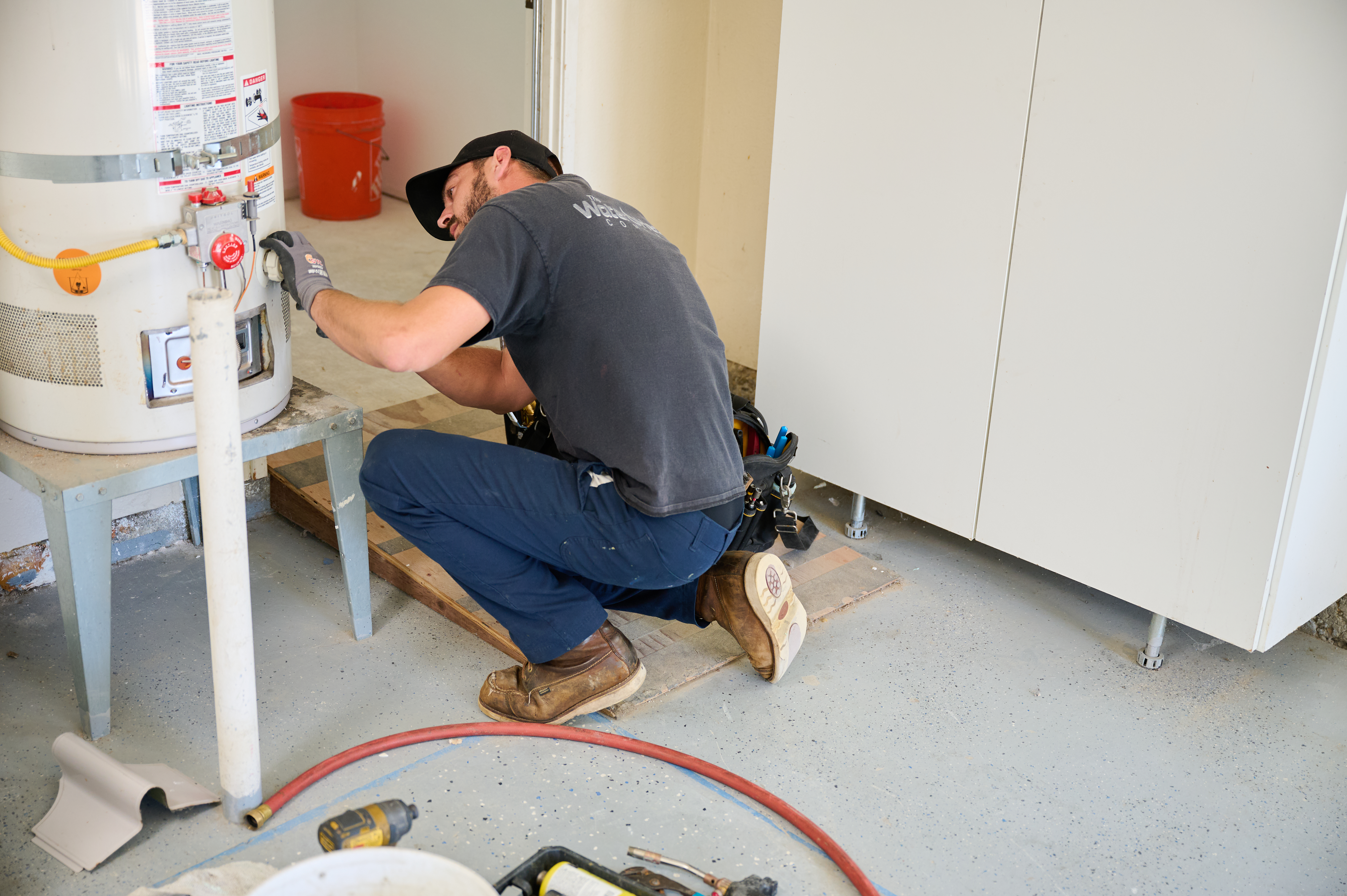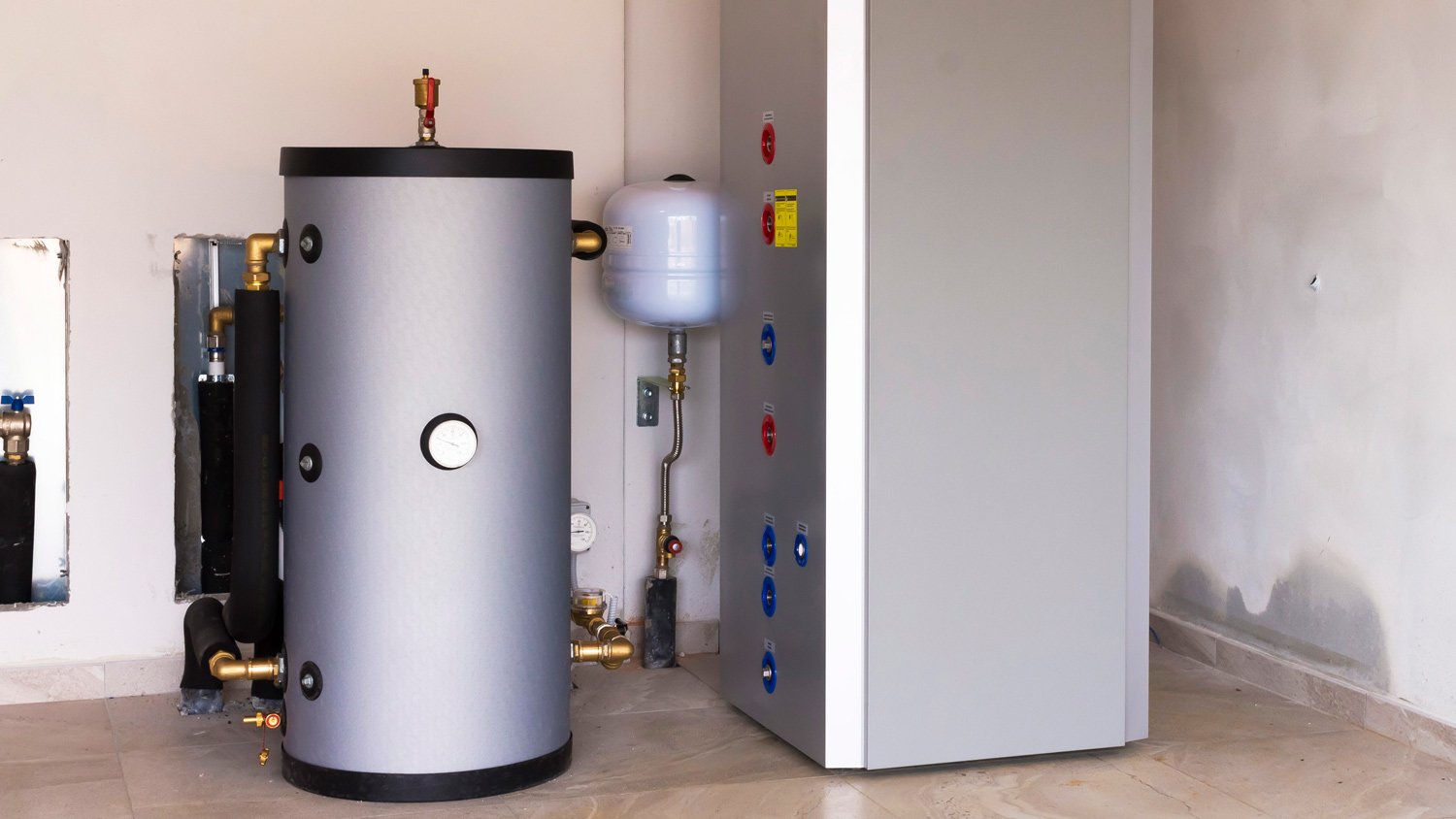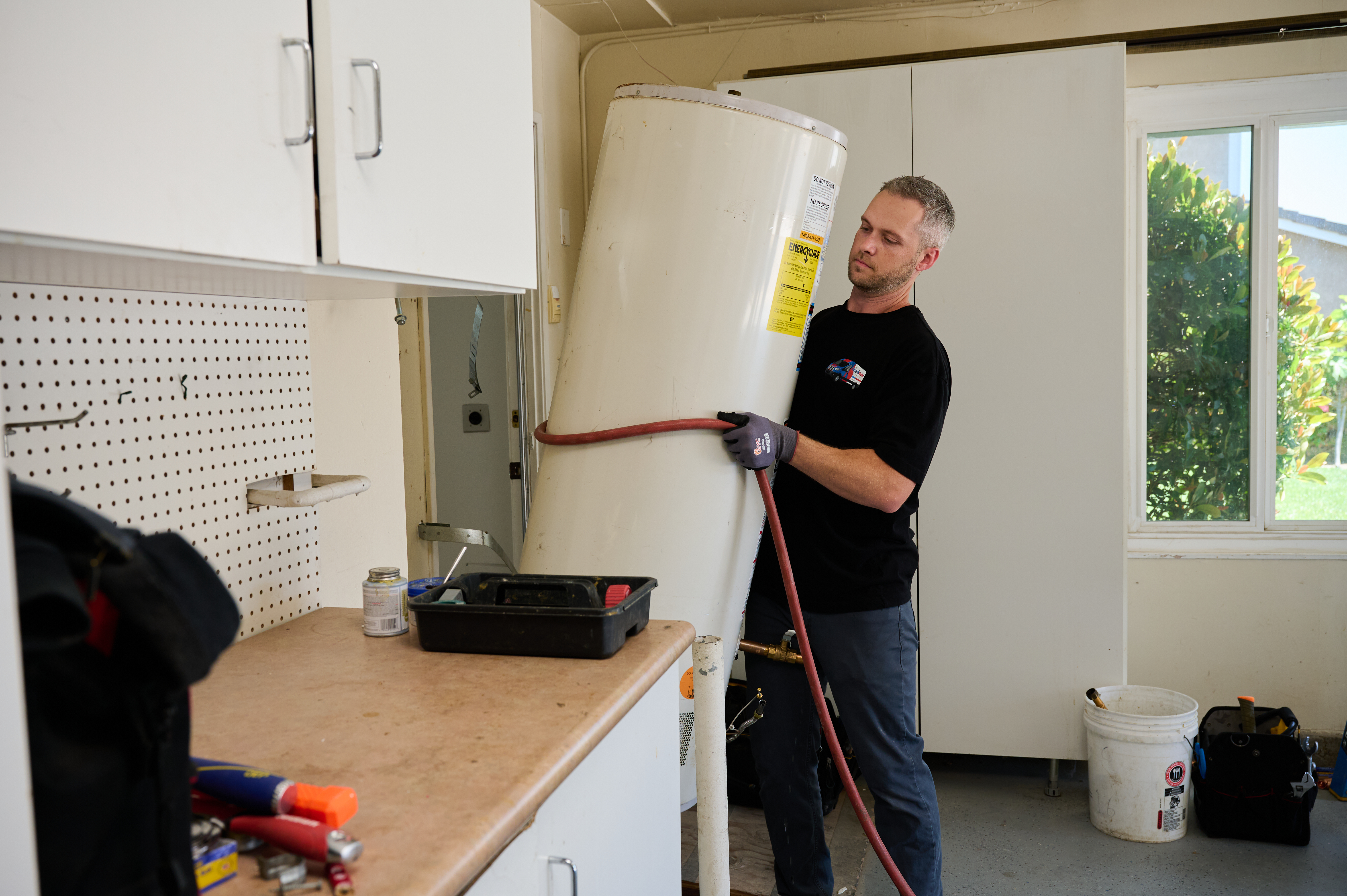
Tankless water heater costs in Columbus, OH depend on the size of your water heater, location, fuel type, and more. Keep reading to calculate your expenses.
This innovative water heater can save you money on long-term energy costs


These water heaters don't generate their own heat; they capture it from the air.
Heat pump water heaters are more energy efficient than conventional water heaters.
You can choose from split, integrated, or hybrid heat pump water heaters.
Heat pump water heaters cost more upfront but they can save you money on your energy bills.
Heat pump water heaters are more energy efficient than conventional water heaters, so they're becoming an increasingly popular choice for homeowners who want to save on their long-term energy bills. However, they don't work very well in certain climates. If you're considering a new water heater installation, learn all about heat pump water heaters, including the pros, cons, and considerations, so you can make an informed investment for your home.
Unlike conventional water heaters, which generate their own heat, heat pump water heaters work by capturing ambient heat—aka the natural heat present in the surrounding environment—and transferring it to warm the water.
The water heater's fan blows the ambient heat across evaporator coils, which are filled with refrigerant. The now warm refrigerant moves through a compressor, which increases both the temperature and pressure before passing through condenser coils and finally heating up the water tank.
Even cool climates have some ambient heat in the air that these devices can use, but they're not always effective in very cold or very hot regions. In general, they should only be used in regions that don't get hotter than 90 degrees Fahrenheit or lower than 40 degrees Fahrenheit.
Heat pump water heaters have nine primary components. Knowing how each works can help you troubleshoot potential problems if they arise.
Water Tank: The water tank stores the water that will be heated, maintaining it at the desired temperature until it's needed. For that reason, it's usually insulated to prevent heat loss.
Evaporator: The evaporator contains coils filled with refrigerant that capture ambient heat. When ambient heat crosses them, the refrigerant absorbs the heat, evaporates, and turns from a liquid into a gas.
Fan: The fan moves ambient heat across the evaporator coils to promote heat absorption.
Compressor: The compressor increases the pressure and temperature of the refrigerant.
Condenser: Usually found near the water tank, the condenser is where the refrigerant releases the heat before condensing back into a liquid state and starting the cycle over.
Two Thermostats: Most heat pump water heaters have two thermostats; one for the upper part of the tank and one for the lower part to ensure the water reaches and maintains the desired temperature.
Cold Water Inlet: This is the access point where cool water enters the water heater, filling the tank from the top down to push hot water to the outlet.
Hot Water Outlet: Located near the top of the tank, the hot water outlet is responsible for sending hot water to the desired source, like a faucet.
Drain: The drain is at the base of the tank, and it's used to flush out sediment or debris buildup in the tank.

There are a few main types of heat pump water heaters to choose from. Consider each option to find the best choice for your household.
In split-system heat pump water heaters, the heat pump and water tank are separate. The heat pump is usually installed outside to capture ambient air, while the water tank is inside. These systems work particularly well if indoor space is limited since you'll only need to store the water tank inside; not the heat pump.
In integrated heat pump water heaters, both the heat pump and water tank are on a single unit, and the whole system is usually installed indoors. Since there's only one unit, they're usually easier and less expensive to install than split-system options, but they take up more indoor space.
Hybrid systems combine a heat pump water heater with a conventional electric heating element. That way, if the heat pump can capture enough ambient heat in the environment, the electric heating element can switch on to heat up the water. Because they essentially combine two types of water heaters, they tend to cost more than other heat pump water heaters.
Heat pump water heaters have many advantages, but they're not without their drawbacks. Before investing in one, make sure to weigh these heat pump water heater pros and cons.
Highly Energy Efficient: Heat pump water heaters are more energy efficient than conventional water heaters, so they're kinder to the environment.
Low Operating Costs: Heat pump water heaters' energy efficiency means that they can save you quite a bit on long-term energy bills.
Safe Temperatures: These water heaters tend to have lower surface temperatures than conventional water heaters, which can make them safer to touch.
Dehumidification: When heat pump water heaters operate, they naturally dehumidify by condensing the moisture in the air, aka water vapor, into water droplets, which collect on the coils. This can make them particularly beneficial when installed in commonly humid areas, like basements.
High Upfront Costs: Heat pump water heaters cost between $1,200 and $3,500, or about 30% more than conventional water heating systems.
Climate Limits: Heat pump water heaters don't work well in climates that see temperatures below 40 degrees Fahrenheit or above 90 degrees Fahrenheit.
Noisy: The fan and compressor in heat pump water heaters can make them noisier than conventional water heaters.
Before purchasing a new heat pump water heater, consider the following factors:
Size: Consider the water heater's physical size, as well as the volume. Make sure your installation site can accommodate the size you choose, and that the water tank is big enough to meet your household's water needs. For example, a family of four usually needs a tank that's at least 50 to 60 gallons.
First Hour Rating: The First Hour Rating, or FHR, indicates how many gallons of water the heater can supply in the first hour of operation. A family of four usually requires an FHR between 50 and 60 gallons.
Energy Efficiency: Heat pump water heaters are more energy efficient than their conventional counterparts, so factor in long-term energy savings when deciding between the two.
Cost: Heat pump water heaters usually cost more upfront than conventional water heaters, but they can save you more money on your energy bills in the long run. So consider whether short- or long-term savings are more important to you.
Use these tips to maintain your heat pump water heater and prolong its lifespan.
Check and clean the air filter every 3 to 6 months depending on your environment.
Schedule an annual inspection from a pro who can address any potential problems before they get too costly.
Drain and flush the tank once per year to get rid of any sediment. Your pro can do this for you during the annual inspection.
Clean the condensate drain lines every year to remove any algae, mold, or mildew. Again, your pro can help with this step during the annual inspection.
At least once per year, lift the lever of the temperature and pressure relief valve and release it to make sure it opens and closes properly.
Inspect the anode rod every 1 to 3 years for rust and corrosion. If you notice any, call a pro to replace it.
Whether or not a heat pump water heater is right for your home largely depends on your climate and budget. If you live in a region that sees temperatures above 90 degrees or below 40 degrees Fahrenheit, then a conventional water heater will work better. Conventional water heaters also tend to cost less upfront. However, if you want to save money on your long-term energy bills, you can't beat the efficiency of a heat pump water heater.
Heat pump water heaters should only be installed by someone with water heater knowledge, skills, and experience. Improper installation can lead to costly, and even dangerous, problems down the line. A qualified water heater contractor can ensure your new unit is installed safely and properly.
From average costs to expert advice, get all the answers you need to get your job done.

Tankless water heater costs in Columbus, OH depend on the size of your water heater, location, fuel type, and more. Keep reading to calculate your expenses.

Looking to replace or upgrade your water heater? Use this water heater replacement cost guide to see what the work will cost and what factors affect your total.

Wondering how much a water heater expansion tank costs? Use this cost guide to get an accurate estimate and learn how to choose the right one for your home.

Not sure who fixes tankless water heaters? In most cases, you’ll want to call a plumber.

Purchasing a water heater warranty to protect yourself against unforeseen repair costs might not seem important, but it could save you big bucks in the long run.

If your water heater is getting warm but not hot, a faulty thermostat, sediment, or more could be to blame. Learn how to spot and solve the problem of a water heater that’s not hot enough.